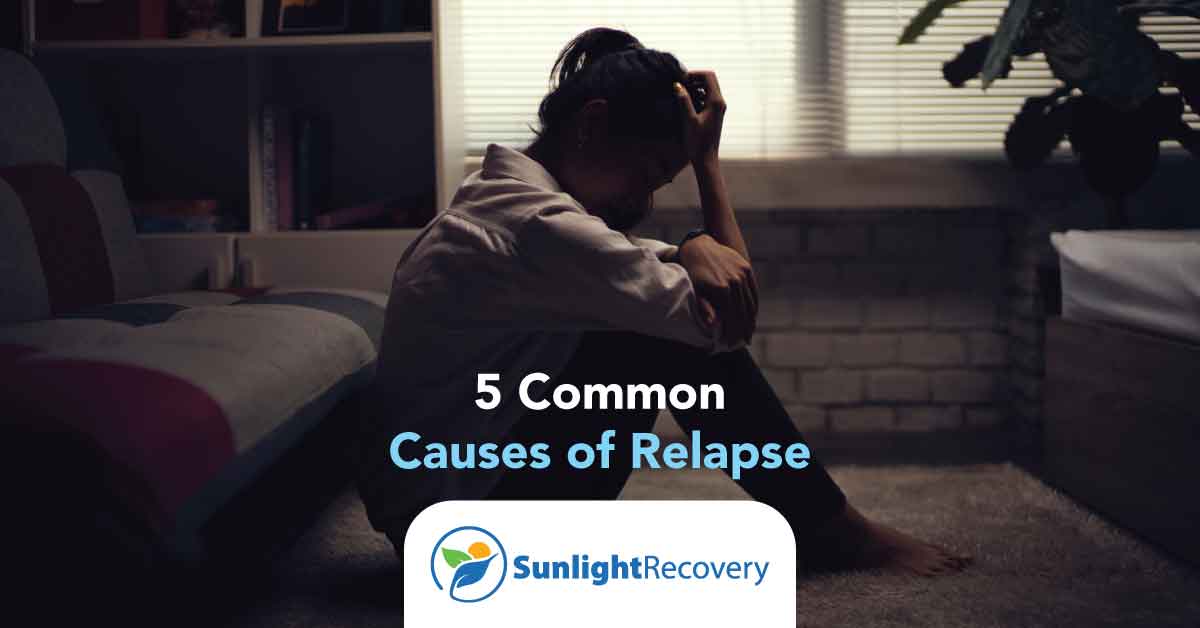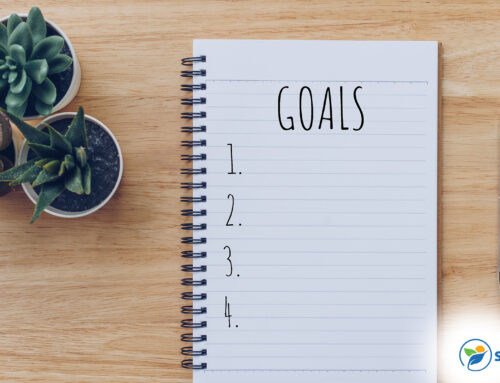Five Common Causes of Relapse
People say that relapse is a part of recovery. While it doesn’t need to be true for everyone, it’s a sad fact that up to 60% of people that leave rehab will end up relapsing. After a year, this number decreases to less than 50% and continues to do so the more sober time people have behind them. The danger with relapse is that not only does it hurt everyone involved, but there is also a high rate of overdose. When people quit using for days, weeks, or months and pick it back up, their tolerance is much lower, using a similar dose to what they used to use can be fatal. People who overdose are rarely suicidal or even have intentions of dying, but because of their body’s chemistry and mind frame, it unfortunately happens.
Relapse always begins to happen way before the physical act of picking up a drug. There are symptoms and signs to watch for in yourself or a loved one so that you are better equipped to stop the process before it gets too far. Here are five common ways people relapse, and what you can do to make sure you don’t follow the same path.
Thinking You’re Cured from Addiction
Once an addict, always an addict.This is a hard rule that doesn’t have any leeway. Addicts are a different breed, and always have the inclination towards substance abuse. Even with the best intentions, when drugs or alcohol come back into their lives it will almost always result in excessive use. Moderation is difficult, so it’s better off to stay away completely. Focus on not picking up, each day, and sober time will continue to build up and the temptation will get less.
Taking Prescription Medication
Opioids are painkillers, and include drugs like vicodin and oxycontin, which are commonly prescribed for routine procedures like getting your wisdom teeth taken out and other minor surgeries. People often begin using the medicine for legit purposes and find themselves hooked, fast. Getting addicted to opiates can lead to doctor shopping and much harder drugs like heroin and fentanyl, which are in the opioid family and sadly easier and cheaper to attain. Whenever you are prescribed a drug, especially a narcotic, make sure to find out all the information you can and take it exactly as directed.
Hanging Around Bad Influences
If the temptation to use or drink is in front of you, chances are you will eventually give in. In recovery, it’s important to surround yourself with people who are positive, sober, and have plenty of good things going on in their lives, with your best intentions at heart. Old friends who you used to use with will most likely try to bring you back down with them again. It isn’t anything personal, it’s just the way of life that they choose, and they probably want their partner in crime back. Find new sober friends, and mirror their habits. One day you might be strong enough to face your old bad influences, but right now isn’t the time to take a chance.
Going Through a Rough Patch
This one is a little harder and less obvious to control, but try to avoid putting yourself into situations where you may be emotionally exhausted. For example, it is advised to stay away from romantic relationships in the first year of sobriety, and the reasons for that are multiple. Early recovery is a time where you need to put yourself first. Worrying about someone else and putting their needs ahead of your own isn’t a smart move at this point, especially if they are new in recovery as well. If something were to go bad with the relationship, it could take a toll on you and make you think about relapsing. Some rough emotional moments cannot be avoided, but do your part by sticking to yourself and focusing on the person who matters most. You.
Not Recognizing Your Own Relapse Mode
A relapse begins to happen way before a drug or a drink is picked up. Learn to identify those moments of weakness in yourself, and have a plan to distract yourself from them in a healthy way. Once the thought of using gets into a person’s head, it’s easy to begin to justify it happening and to put plans into place to carry out on it. Recognize these characteristics, speak up, and get help so that you can intercept the relapse before it happens.
Relapse is a part of recovery, but it doesn’t have to be a part of yours. Learn to recognize your own red flags so that you can get the help you need before it is too late. Don’t be afraid to walk away from situations that put you in danger, and to say no to people who don’t have your best interest in mind. Each day that you prevent a relapse makes you stronger than the last. As they say in recovery, take things day by day, focus on the present, and keep yourself clean and sober. Nothing else matters, and everything else will fall into place when the time is right.







Leave A Comment